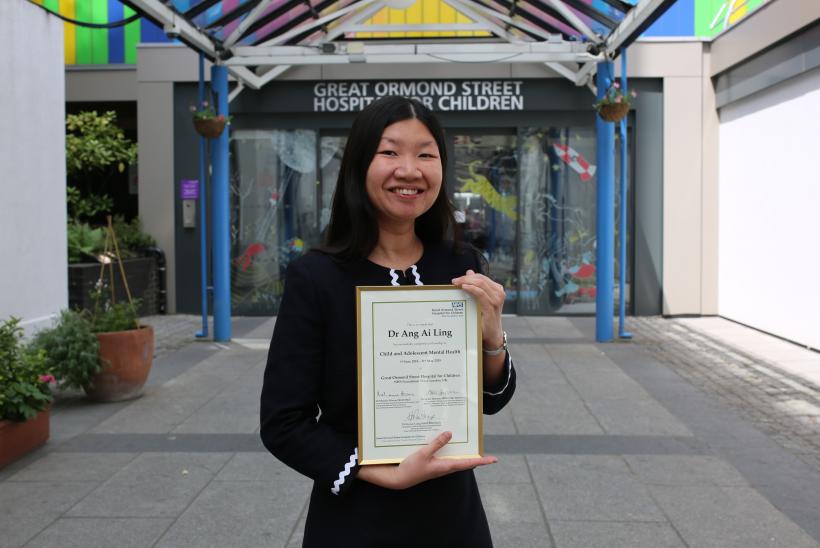Meet Ang Ai Ling
Ang Ai Ling, previous Clinical Fellow in the Department of Child and Adolescent Mental Health at Great Ormond Street Hospital (GOSH) discusses her time as an International Fellow at GOSH.
What are your responsibilities as a Clinical Fellow in the Department of Child and Adolescent Mental Health at GOSH?
The role includes being a member of the Psychological Medicine team that works in the interface of physical and mental health and undertakes specialised assessment and treatment of psychiatric and neurodevelopmental disorders in children and adolescents. I also had the opportunity to work with the Attachment and Trauma team, Feeding and Eating Disorders team and Social Communication Disorders Clinic team within the department and the Children’s Epilepsy Surgery Service. As a Fellow I’m on the on-call rota that receives hospital-wide emergency ward and clinic referrals as well as paediatric liaison referrals.
How have you found the Fellowship at GOSH?
The fellowship has been a truly rewarding experience so far; being involved in the management of children and young people with complex, rare or multiple conditions and seeing positive differences first hand is priceless. Having time for research, and special interest in community Child and Adolescent Mental Health Services (CAMHS) and inpatient units in other NHS trusts are additional benefits. Another plus is the opportunity to participate in the excellent in-house training and educational programmes as well as external courses and conferences.
It is my honour and pleasure to work with a highly competent and dynamic team who also happen to be the most kind and compassionate people who will go above and beyond their duties to provide the best service for the patients and their families. I value the relationship formed both professionally and personally. And the team being awarded Royal College of Psychiatrists Psychiatric Team of the Year 2018: Children and Adolescents is a highlight.
Do you have any advice for international doctors thinking about further training abroad?
I think having clear training aims and educational objectives are essential. The next step is to look at the potential fellowship programmes and the minimum entry requirements. It will be worthwhile to research the prospective departments, clinical teams or services to think about whether it might be the suitable placement that will help you achieve your aims. You will also need to think about funding and the International Fellowship Programme specifically requires applicants to obtain support and funding from their home organisation.

